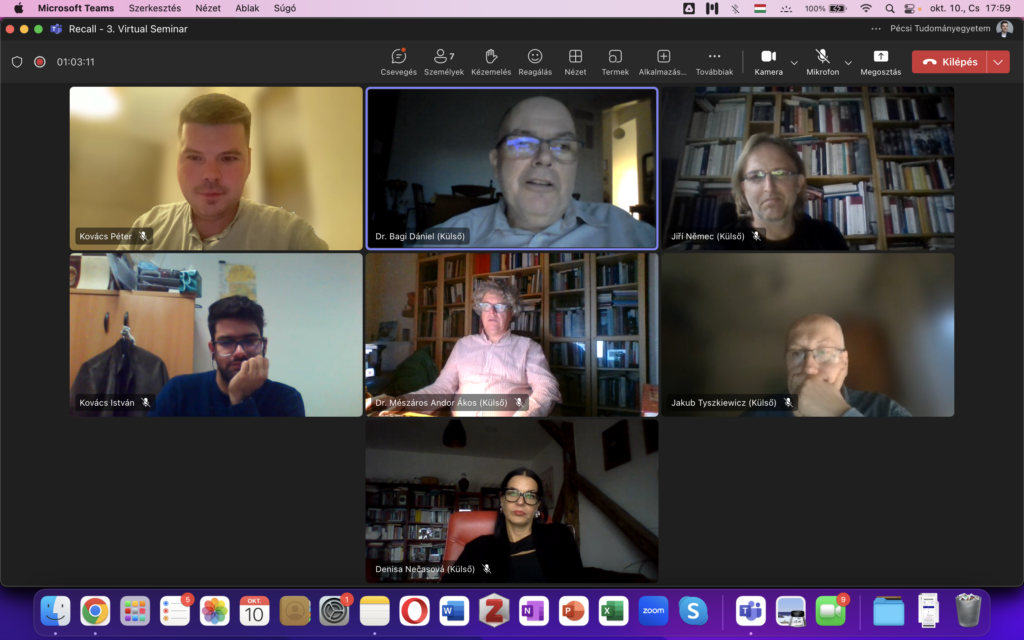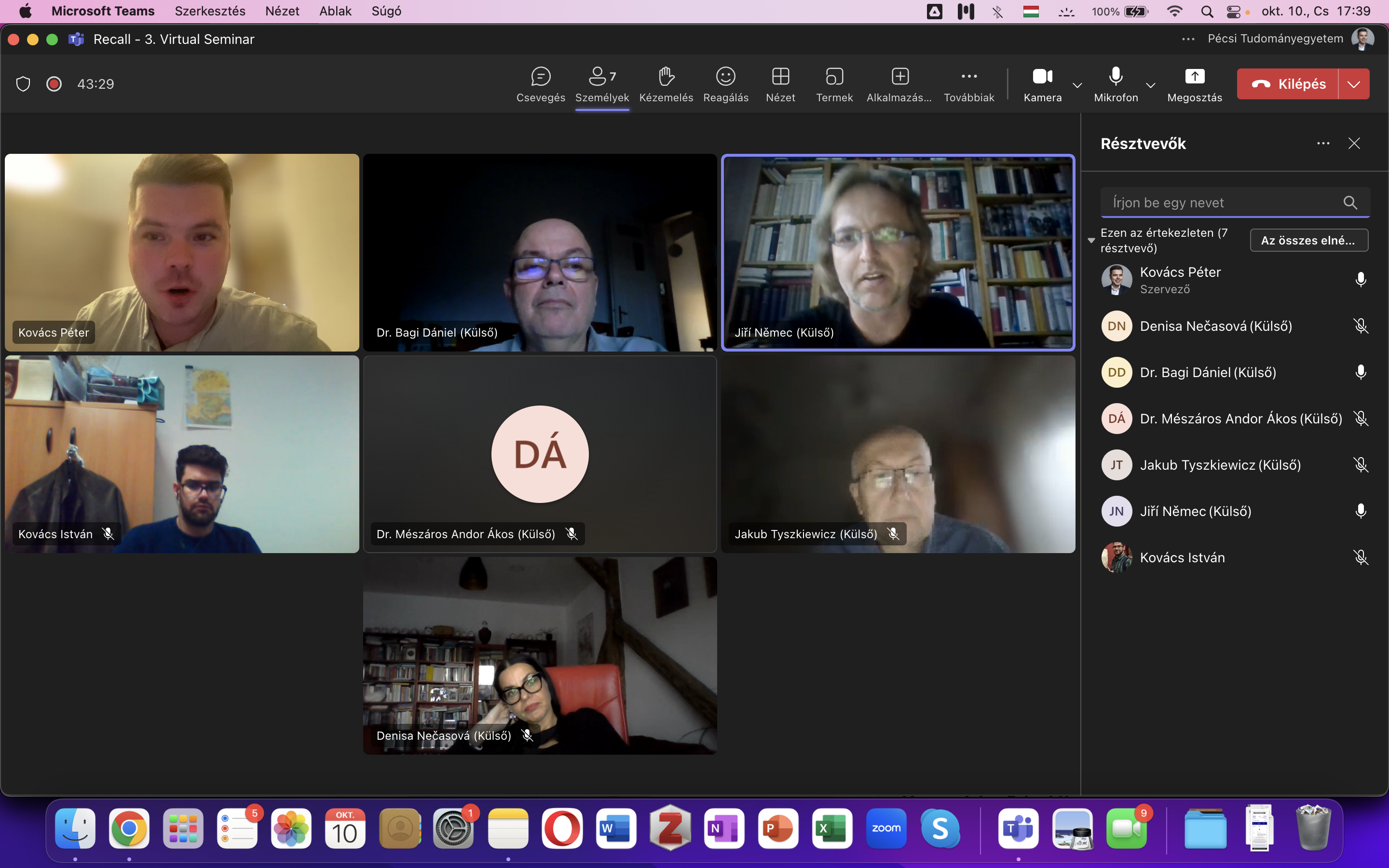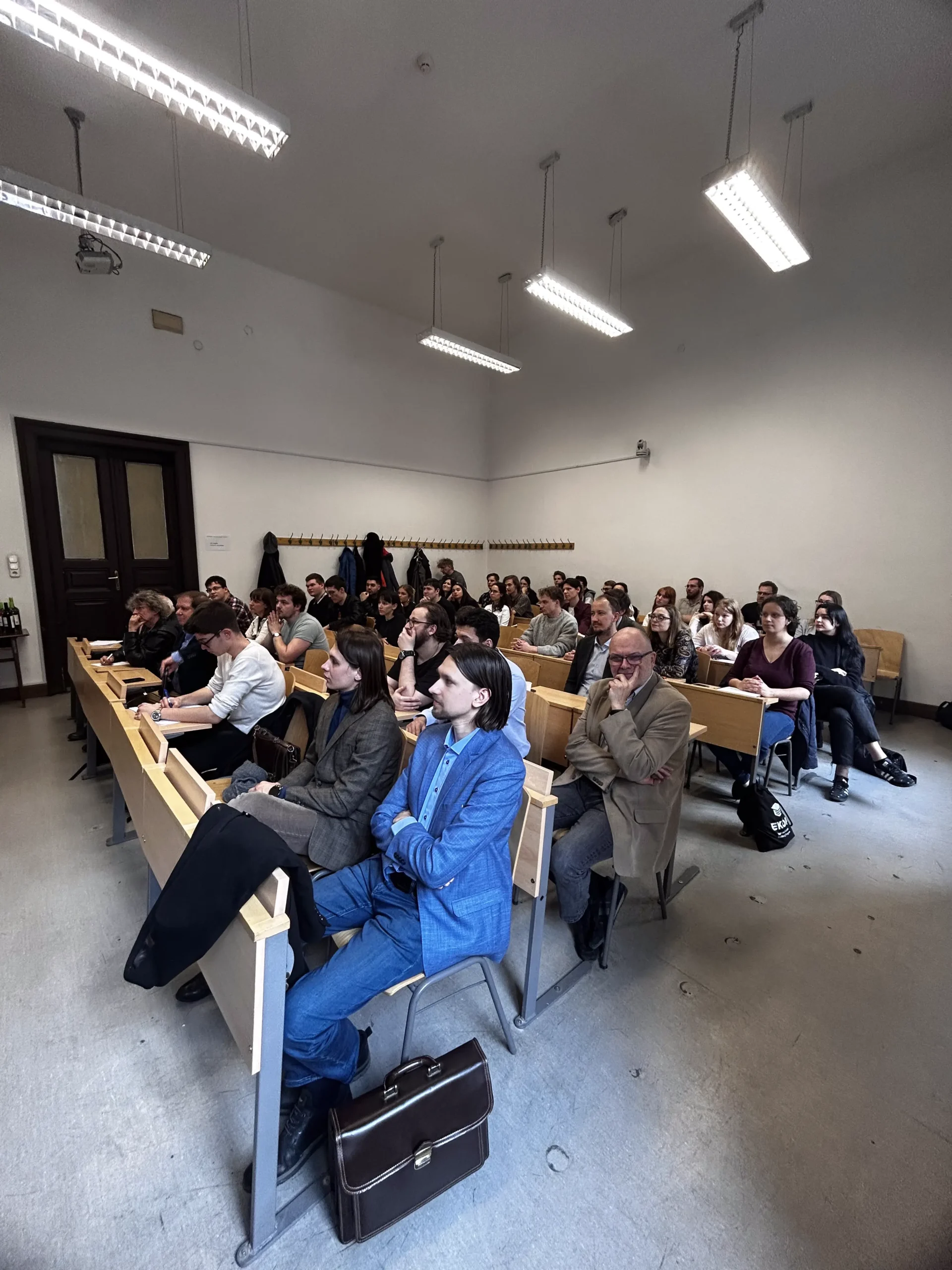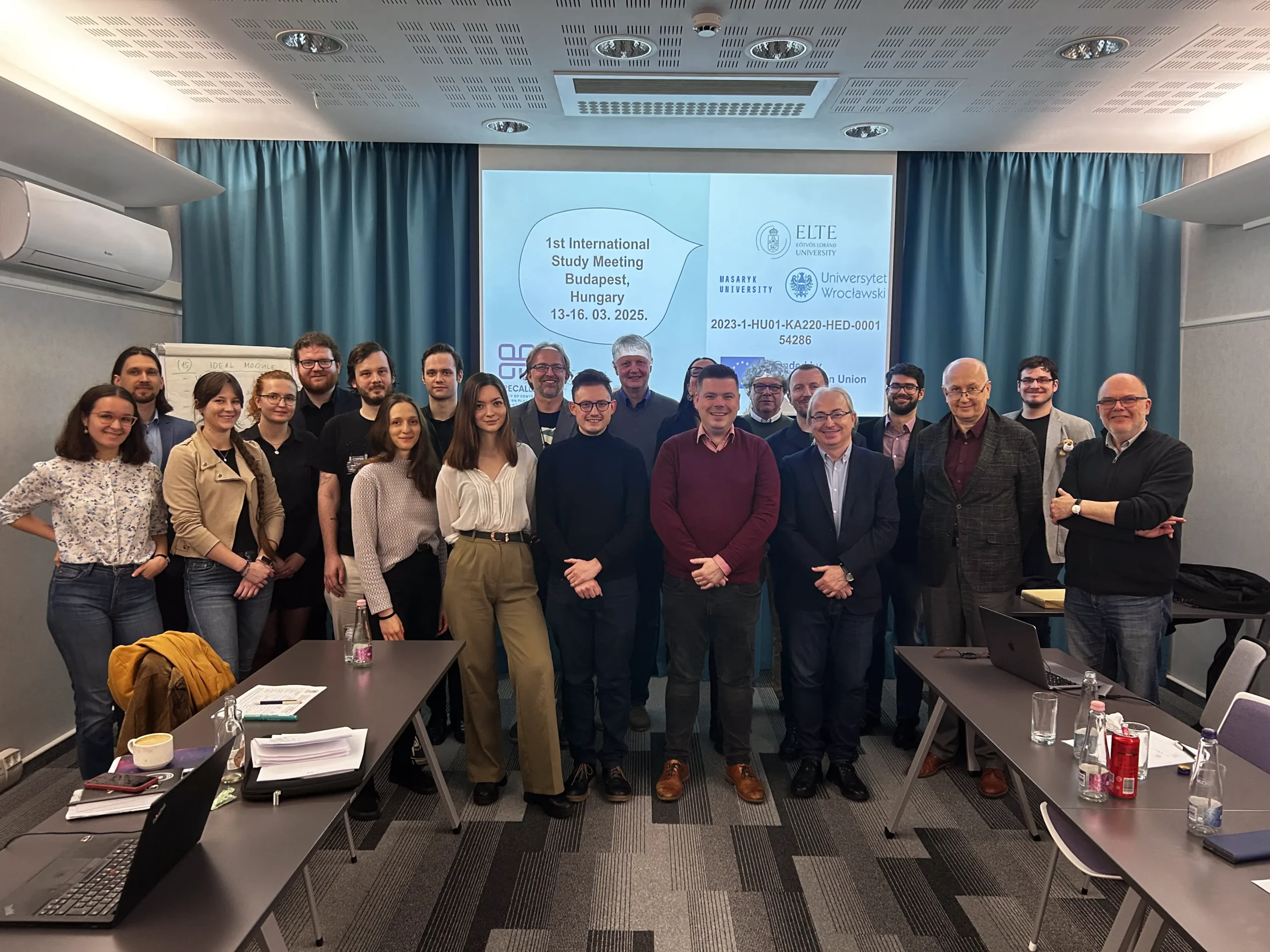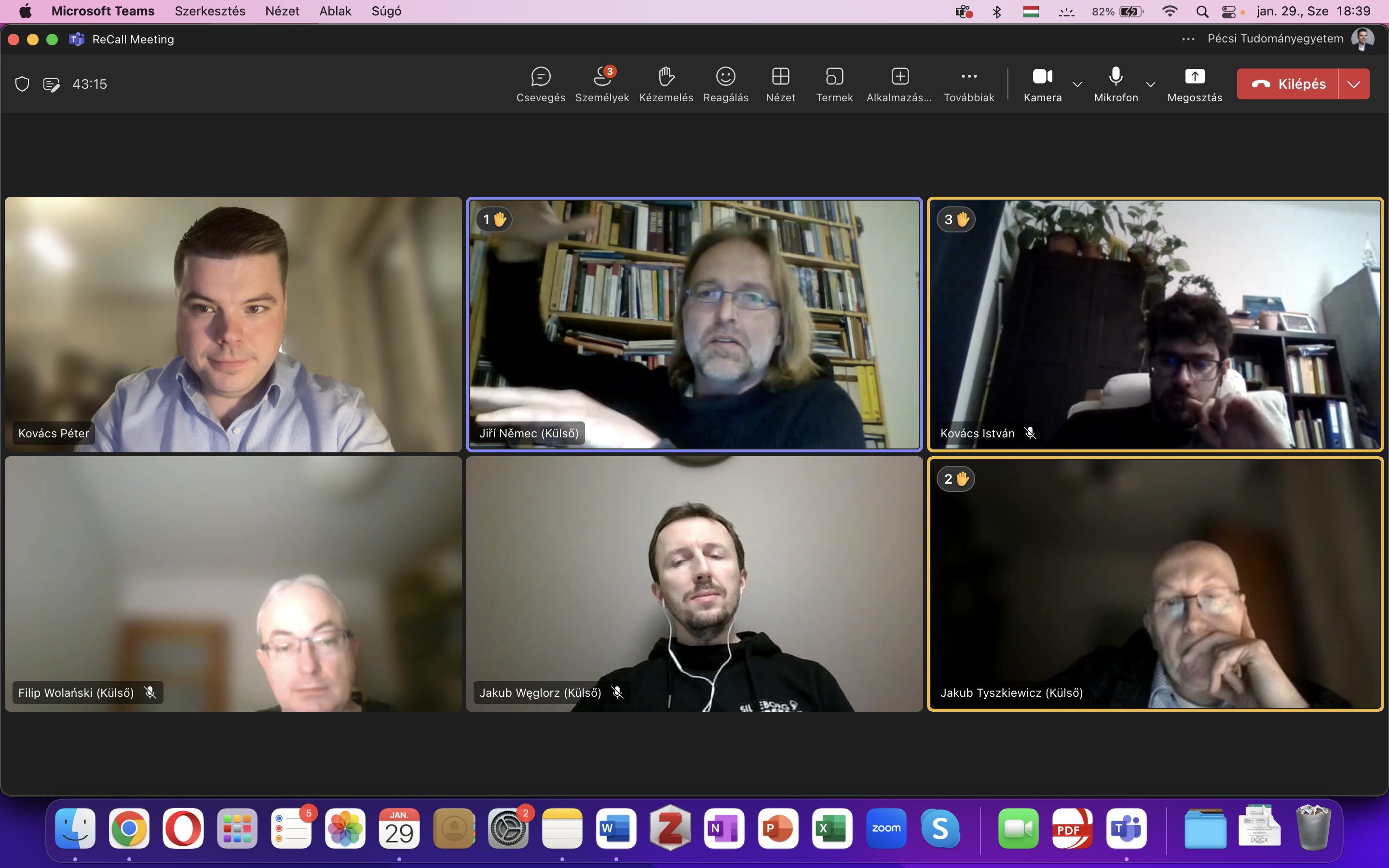On October 10, 2024, the ReCall project team convened for the third and final virtual seminar, marking an essential milestone as the project progresses toward completion. During this online meeting, attended by all partners via Microsoft Teams, the team reviewed recent advancements, evaluated the latest feedback from the Tempus Public Foundation’s Monitoring Visit, and outlined key actions for the next project phase.
The Tempus Public Foundation’s Monitoring Visit provided valuable insights, particularly regarding documentation and reporting practices. The report underscored the importance of presenting project progress, decisions, and changes in a clear and structured manner. To address this, the team discussed implementing a more rigorous reporting framework, aiming to ensure that all records—ranging from attendance sheets to activity documentation—meet the detailed expectations of the grant agreement. By standardizing these practices, the ReCall team intends to streamline reporting across all partner organizations, creating a cohesive record that reflects the project’s advancements and outcomes accurately. These improvements will not only enhance project transparency but will also build a foundation for future collaboration across similar international initiatives.
Furthermore, dissemination and outreach were identified as priority areas, with the report emphasizing the need to extend project visibility to broader audiences. In response, the team committed to increasing promotional efforts, targeting diverse groups such as universities, research institutions, and the interested public. Each partner will play an active role in these initiatives, ensuring that the project’s outcomes resonate widely across academic and public communities. One particular recommendation was to expand language options within the map and catalog content, making materials accessible beyond English and thereby strengthening cross-cultural engagement. By incorporating these recommendations, the ReCall project aims to enhance its reach and impact, fostering a broader appreciation of Central European memory sites and their historical significance.
Updates on the Thematic Map and Catalogue: The latest version of the ReCall project’s thematic map and catalog introduces a series of enhancements designed to improve accessibility and user engagement with Central European memory sites. The thematic map now features color-coded pins, allowing users to quickly identify and differentiate between various historical topics and regions. This feature not only aids in visual clarity but also creates a more engaging, interactive experience for both academic and public users. In addition, checkboxes for each “figure-fact” topic provide a customized exploration, enabling users to selectively display or hide information based on their interests. This functionality empowers users to navigate historical narratives with ease, moving between different layers of context to gain a deeper understanding of each site’s unique historical significance.
Significant progress has also been made in content uploads, with each site now accompanied by detailed. During the latest updates, Jakub’s contributions have been especially notable, with a full suite of Polish materials now available, adding depth to the map’s content. While this achievement marks a major step, work continues on additional uploads, as other contributors finalize their descriptions. Ensuring these descriptions are complete and accessible is crucial as the team prepares for the public launch, which will showcase the fully-realized thematic map and catalog to a wide audience in the coming weeks. The ongoing efforts in integrating this content demonstrate a collective dedication to creating a resource that is both academically robust and publicly engaging, serving as a vital tool for exploring Central European historical sites and memories.
Course Development Advancements: The team outlined the structure of the upcoming e-learning course. This course will consist of 15 modules, each featuring a 30–35-minute instructional video with corresponding e-learning tasks. Partner teams will nominate module coordinators and experts to develop content, ensuring national perspectives are thoughtfully integrated. Preparations are underway with the video production team to produce high-quality, engaging educational materials.
Next Steps and Key Deadlines:
- November 10: Completion and upload of topic descriptions.
- November 17: Cross-review process for all descriptions.
- November 20: Final upload of the catalog and map content.
- November 22: Online conference to present the final catalog and map to a public audience.
